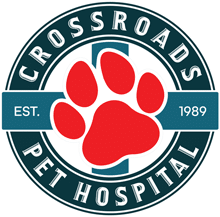
Keeping your furry companion healthy and happy throughout their life is every pet owner’s top priority. Regular veterinary checkups play a crucial role in achieving this goal. Beyond addressing specific health concerns when they arise, these appointments focus on preventive healthcare. They allow veterinarians to detect potential problems early when they’re often easier and more affordable to treat.
What a Wellness Exam Involves for Your Pet
A comprehensive wellness exam is a thorough head-to-tail examination conducted by a veterinarian. It provides a detailed snapshot of your pet’s overall health and serves as a valuable baseline for future reference. Here’s a closer look at the key elements often included in a wellness exam:
- Physical Examination: A veterinarian will meticulously examine your pet from nose to tail, feeling for abnormalities and assessing their overall condition. This may include:
- Palpation: Gently feeling your pet’s body for lumps, bumps, or other signs of pain or discomfort.
- Visual Inspection: Examining your pet’s skin, coat, eyes, ears, teeth, and gums for any signs of infection, parasites, or other issues.
- Auscultation: Listening to your pet’s heart and lungs using a stethoscope to detect any abnormalities in their breathing or heart rhythm.
- Lymphatic System Check: Feeling your pet’s lymph nodes for signs of swelling, which can indicate infection or other health problems.
- Weight Check: A veterinarian will weigh your pet and compare their weight to breed standards or previous records. This allows for monitoring weight gain or loss, which can be early signs of underlying health issues.
- Vital Signs Assessment: Similar to humans, pets have vital signs that provide clues about their general health. A veterinarian will typically measure your pet’s temperature, heart rate, and respiratory rate.
- Discussion of Diet and Exercise Habits: Your veterinarian will ask you about your pet’s diet and activity level. This information helps them assess your pet’s overall health and recommend any adjustments needed to ensure they receive the proper nutrition and exercise for their age and breed.
- Review of Parasite Prevention: This involves discussing your current parasite prevention regimen for your pet. The veterinarian will ensure you’re using appropriate products for your pet’s species and lifestyle and may recommend adjustments if necessary.
The Advantages of Regular Wellness Exams
Scheduling regular wellness exams for your pet offers a multitude of benefits that contribute significantly to their long-term health and happiness. Let’s delve into the key advantages:
- Early Detection of Potential Health Problems: Many diseases, especially in their early stages, can present with subtle symptoms that are easily missed by pet owners. During a wellness exam, a veterinarian can identify potential health issues like heart disease, kidney problems, and even certain cancers before they progress to a more advanced and potentially life-threatening stage.
- Opportunity to Address Concerns about Your Pet’s Behavior or Habits: During a wellness exam, you have the opportunity to discuss changes in appetite, lethargy, unusual vocalizations, or difficulty with elimination..
- Development of a Personalized Preventive Healthcare Plan: Based on your pet’s age, breed, lifestyle, and overall health, your veterinarian can develop a customized preventive healthcare plan during a wellness exam.
- Maintaining Current Vaccinations and Parasite Control: Wellness exams provide the perfect opportunity to ensure your pet’s vaccinations are up-to-date and to discuss the most effective parasite prevention methods based on your pet’s needs and environment.
Preparing for Your Pet’s Wellness Exam
A little preparation goes a long way in ensuring your pet’s wellness exam is a positive experience for both of you. Here are some key points to consider:
- Gather Any Relevant Medical History: If your pet has any pre-existing medical conditions, past surgeries, or allergies, gather any relevant documentation beforehand. This can help your veterinarian gain a comprehensive understanding of your pet’s health history.
- Note Any Recent Changes in Your Pet’s Behavior or Health: Keep track of any recent changes in your pet’s behavior or health, such as changes in appetite, energy levels, urination or defecation habits, vomiting, diarrhea, or coughing. Noting these down can help you discuss them thoroughly with your veterinarian during the exam.
- Prepare a List of Questions: Don’t hesitate to write down any questions you have concerning your pet’s health or care. This could include inquiries about diet, exercise, parasite prevention, specific behaviors, or any concerns you may have. Having a list ensures you don’t forget anything during the appointment.
- Prepare a Comfortable Carrier or Leash: If you have a cat, ensure you have a comfortable carrier to transport them to and from the clinic. For dogs, a sturdy leash and collar are essential. Familiarize your pet with their carrier or leash beforehand to minimize stress during the visit.
Schedule a Wellness Exam Today!
At Crossroads Pet Hospital, we understand the deep bond you share with your furry companion. As your trusted veterinary partner in Carrollton, TX, we’re committed to providing exceptional care throughout your pet’s life journey. Regular wellness exams are a cornerstone of preventive healthcare, allowing us to detect potential issues early, address your concerns, and work together to create a personalized plan for your pet’s optimal health.
Whether you’re located in Carrollton, Lewisville, Flower Mound, The Colony, or a surrounding area, Crossroads Pet Hospital is conveniently located to serve your pet’s needs. Don’t wait until a health concern arises. Schedule a comprehensive wellness exam for your pet today and ensure they live a long, happy, and healthy life.








